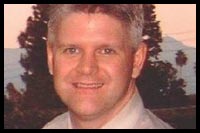I began suspecting my health was being impacted by dental amalgam in about 2000 but dismissed the idea as crazy trusting the scientific integrity of the dental and medical community. I assumed the anti-amalgam community to be unscientific alarmist or charlatans. In 2002, I began to research the issue expecting to find little or no scientific work on the subject. I was shocked to find hundreds of papers supporting the concerns regarding dental amalgam including the assessment of over 700 papers by Maths Berlin.
Robert Cartland
Shares his story of mercury toxicity
from his dental mercury fillings
At the time my health was in terrible shape. I could not work and needed to sleep in several days a week. I was suffering from numerous ailments including: chronic fatigue, muscle ache, numbness and tingling, sciatica, dizziness, tremors, speech difficulties, low self-confidence, timidness, irritability, memory loss and brain fog. I also experienced a persistent metallic taste in my mouth. I allowed myself to rest, undertook physical and mental therapy, tried numerous traditional and non-traditional treatments but continued to get worse.
In 2002, I began treating myself for amalgam illness consulting references from the internet. I found a reasonably priced mercury free dentist and had my eight amalgam fillings replaced with mercury free alternatives. One filling was semi-liquid beneath a solid metal cap! I also treated myself for chronic mercury poisoning using a supplement and chelation protocol developed after reading the notes of chemist Andrew Hall Cutler.
Since 2003, I have been able to work again and now have three daughters. I am currently a Senior Physics Engineer with Raytheon SAS and a leader in my profession serving as Past President & Webmaster of the Optical Society of Southern California.
In December 2010, I testified at the FDA dental products panel meeting urging the FDA to discontinue the use of mercury dental restorations.
Robert Cartland


I too suspect the much-repeated tests showing amalgam to be safe are quite flawed. There’s an interesting correlation of MS ‘outbreaks’ and military settlements (they bring free dental care to communites).
Countries with poor dentistry (pull em, don’t fill em style) have lower instance of MS.
Did Robert Cartland go on the chelate as per Andy Cutler’s advice. It think he should if he didn’t. He didn’t mention anything about that, just the fact that he took supplements that made him feel better. I think by looking at him he could use a couple of years worth of Alpha Lipoic Acid chelation.
This is most interesting; I had three amalgams removed a few months ago, and though I did start to feel better shortly after I never went on any supplement or chelation program; and I still have some of the symptoms Robert Cartland mentioned Reading this report by Robert – and the interesting comment from Rebecca – I believe I’ll have to do some serious detoxing. I never even heard of Alpha Lipoic Acid
Thank you for speaking out..Mercury will inhibit the synthesis of vitamin D as well as the B vitamins. This article was published in the Ottawa Citizen
Ottawa Citizen Division of Canwest Publishing Inc.
March 8th, 2010
Vitamin D essential to immune response, study finds
By Kate Kelland, ReutersMarch 8, 2010
Vitamin D is vital in activating human defences and low levels suffered by around half the world’s population may mean their immune systems’ killer T cells are poor at fighting infection, scientists said on Sunday.
The findings by Danish researchers could help the fight against infectious diseases and global epidemics, they said, and could be particularly useful in the search for new vaccines.
The researchers found that immune systems’ killer cells, known as T cells, rely on vitamin D to become active. The cells remain dormant and unaware of the possibility of threat from an infection or pathogen if vitamin D is lacking in the blood.
“When a T cell is exposed to a foreign pathogen, it extends a signalling device or ‘antenna’ known as a vitamin D receptor, with which it searches for vitamin D,” said Carsten Geisler of Copenhagen University’s department of international health, immunology and microbiology, who led the study.
“This means the T cell must have vitamin D or activation of the cell will cease. If the T cells cannot find enough vitamin D in the blood, they won’t even begin to mobilize.”
Scientists have known for a long time that vitamin D is important for calcium absorption, and that there is a link between levels of the vitamin and diseases such as cancer and multiple sclerosis.
“What we didn’t realize is how crucial vitamin D is for actually activating the immune system — which we know now,” Geisler wrote in the study in the journal Nature Immunology.
Most vitamin D is made by the body as a natural by-product of the skin’s exposure to sunlight. It can also be found in fish liver oil, eggs and fatty fish such as salmon, or taken as a supplement.
Almost half of the world’s population has lower than optimal levels of vitamin D and scientists say the problem is getting worse as people spend more time indoors.
Geisler and his research team said the findings offered much needed information about the immune system and would be of particular use when developing new vaccines.
He said there were no definitive studies on the optimal daily vitamin D dose, but experts recommend 25 to 50 micrograms.
© Copyright (c) The Ottawa Citizen